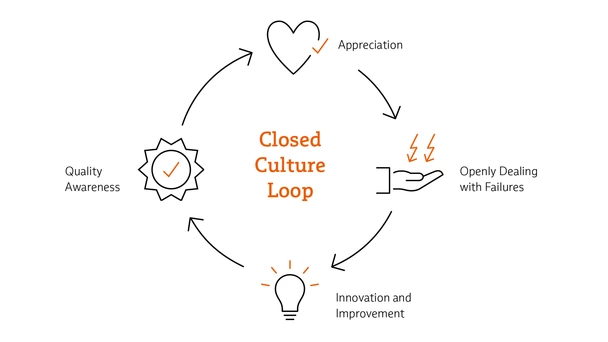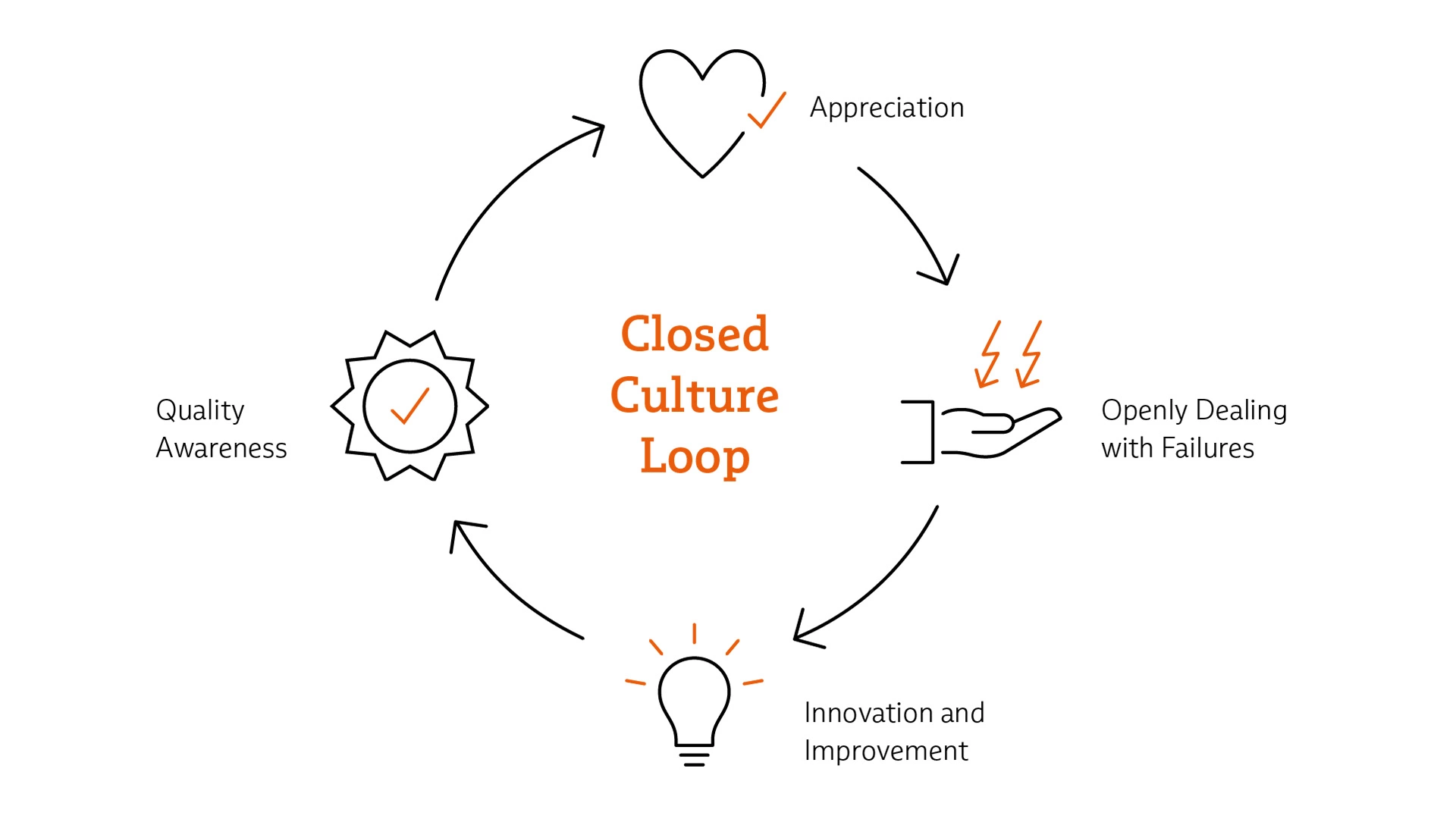Just like quality itself, a quality-promoting corporate culture must also be part of the corporate strategy, and a clear commitment from management is essential. We have identified our corporate mission statement as a suitable place for this commitment. In a revision process, not only have our vision and mission been recorded, but our values and quality policy have also been incorporated.
In order for the mission statement to become a lived reality throughout the entire team in the sense of a corporate culture that promotes quality, all managers must be brought on board. For our corporate values to be reflected in the day-to-day work of the team, all managers must feel them, live them and demand them. Their role in this process is that of cultural ambassadors with a role model function, who are also responsible for the cultural fitting of new team members and their integration into the cultural fabric. We will therefore work with managers to develop and implement leadership principles based on the mission statement.
After all, a corporate culture that enables the Closed Culture Loop must be experienced and lived by every team member in their day-to-day work – whether in trusting and supportive collaboration within the team or in binding and appreciative external contact with customers and prospects. If we all share the same values in our company, this leads to increased identification with the specialist task, courage to innovate, an open error culture with a continuous improvement process, or in short: a quality-promoting corporate culture.










Comments
No comments